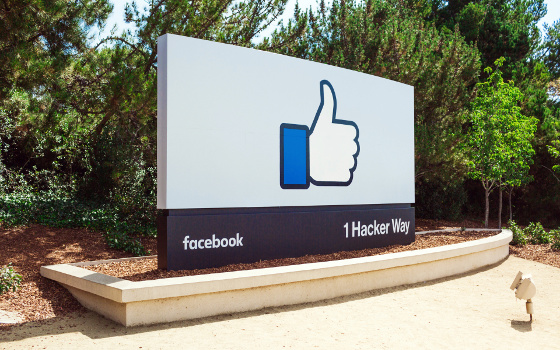Over a billion people worldwide use Facebook daily - one in seven of the global population - and social media use is increasing at three times the rate of other internet use. Evidence suggests that 92% of adolescents use the site daily and disclose considerably more about themselves online than offline.
Writing in today's edition of Lancet Psychiatry, researchers from the University of Cambridge discuss how social networking sites might be harnessed to provide data to help further our understanding of the onset and early years of mental illness.
"Facebook is hugely popular and could provide us with a wealth of data to improve our knowledge of mental health disorders such as depression and schizophrenia," says Dr Becky Inkster, the study's lead-author, from the Department of Psychiatry. "Its reach is particularly broad, too, stretching across the digital divide to traditionally hard-to-reach groups including homeless youth, immigrants, people with mental health problems, and seniors."
Dr Inkster and her colleagues argue that Facebook might be used to help improve the detection of mental health factors. Dr Michal Kosinski, co-author from Stanford Graduate Business School, adds that Facebook data tends to be more reliable than offline self-reported information, while still reflecting an individual's offline behaviours. It also enables researchers to measure content that is difficult to assess offline, such as conversation intensity, and to reach sample sizes previously unobtainable.
Status updates, shares and likes can provide a wealth of information about users, they say. A previous study of 200 US college students over the age of 18 years found that one in four posted status updates showing depressive-like symptoms. By analysing the language, emotions and topics used in status updates, the researchers say that it may be possible to look for symptoms or early signs of mental illness. Even photographs might provide new insights; Facebook is the world's largest photo sharing website, with some 350 million photos uploaded daily, and automated picture analysis of emotional facial expressions might offer unique representations of offline behaviours.
Studies have shown that social networks can have both positive and negative effects on user's emotions. Being 'unfriended' can elicit negative emotions, but even an individuals' News Feed, which reports what their friends are up to, can affect their mood: one study found that a reduction of the amount of positive content displayed by friends led to an increase in negative status updates by users, and vice-versa. Other research has shown that some people with mental health disorders report positive experiences of social media, suggesting that Facebook might be harnessed to offer people support. People with schizophrenia and psychosis, for example, have reported that social networking sites helped them socialise and did not worsen their symptoms.
The researchers suggest that the use of therapies based on users' Facebook pictures and timelines could be trialled as possible ways to use online social networks to support individuals. This might assist with accessing autobiographical memories, which can be impaired in conditions such as depression, and for improving cognition and mood with older patients, similar to offline therapies for early dementia.
"Facebook relationships may help those with reduced self-esteem and provide companionship for individuals who are socially isolated," says Dr Becky Inkster. "We know that socially isolated adolescents are more likely to suffer from depression and suicidal thoughts, so these online stepping stones could encourage patients to reform offline social connections."
These online - potentially leading to offline - social connections can provide support for vulnerable individuals such as homeless youth, a population at increased risk of mental health problems. Research has shown that this support is associated with a reduction in their alcohol intake and a decrease in depression-like symptoms. Unlike virtual patient communities, an advantage of using social networking sites, especially Facebook, is that people naturally use them in their daily lives, which addresses concerns about the limited duration of participation in virtual communities.
Early detection of digital warning signs could enhance mental health service contact and improve service provision, the researchers say. Facebook already allows users who are worried about a friend's risk of suicide to report the post, for example. However, the use of social networking sites in the context of mental health and young people raises potential ethical issues. Vulnerable individuals will need to fully understand what participation in psychiatry research and mental health-care practice involves and that consent is monitored throughout the various stages of their illness.
"People are uneasy at the idea of having their social media monitored and their privacy infringed upon, so this is something that will need to be handled carefully," says co-author Dr David Stillwell from the Cambridge Judge Business School. "To see this, we only have to look at the recent furore that led to the abrupt suspension of the Samaritans' Radar Twitter app, which with the best of intentions enabled users to monitor their friends' Twitter activity for suicidal messages."
Much of this research is still in its infancy and evidence is often anecdotal or insufficient, argue the team. Several issues need addressing, such as whether using social media might interfere with certain illnesses or symptoms more than others - such as digital surveillance-based paranoid themes - and to ensure confidentiality and data protection rights for vulnerable people. But they are optimistic about its potential uses.
"Although it isn't clear yet how social networking sites might best be used to improve mental health care, they hold considerable promise for having profound implications that could revolutionise mental healthcare," says Dr Becky Inkster.
Inkster, Becky et al.
A decade into Facebook: where is psychiatry in the digital age?
The Lancet Psychiatry, Volume 3, Issue 11, 1087-1090, DOI: 10.1016/S2215-0366(16)30041-4
